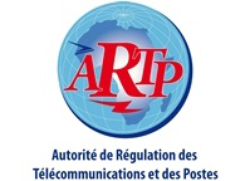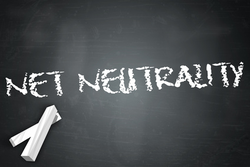July 15, 2016
Breaking news

In Senegal, the Autorité de régulation des télécommunications et des postes (ARTP ; English translation: Telecommunications and Posts Regulatory Authority) has, just like all regulators, inherent powers to impose sanctions. In general, the important thing is not only to exercise this sanctioning power but to exercise it in a way that reinforces the authority of the Regulator. In this perspective, the new Sonatel sanction decision is important.
As a sanctions always carry a heavier weight when people are made aware of it, the Director General of the Artp issued a press release, that has been flagged as particularly important, and held a press conference (in French) on a particularly serious sanction imposed following what the Regulator considers as the non-fulfilment of obligations stemming from formal notices (which, by the way, the telecom operator challenges on the merits).
On 21 November 2014 indeed, the Sonatel was given a formal notice from the Artp to respect consumer rights. As the code of telecommunications provides since its modification in 2014, operators shall "prendre les mesures appropriées de dimensionnement de leurs réseaux de nature à garantir à leurs clients un accès ininterrompu à leur service client commercial ou technique en respectant un taux d’efficacité minimal" (translation: "take appropriate measures to size their networks in a way that provides their consumers with an uninterrupted access to their customer service (sales service and technical support) which would respect a minimum efficiency rate") set by the Regulator itself- as to, namely, ensure that the right of consumers to be informed is satisfied (as regards billing mechanisms) and that their calls to consumer services remain free of charge. As the Regulator estimated that the Sonatel was not complying with such regulations, it conducted a formal investigation and notified a statement of objections to the operator, before sending on 28 January 2015 a second formal notice for the same reasons.
On 14 July 2016, the Regulator imposed a sanction on Sonatel since the it still estimated that the operator's behavior still was not leading to a compliant situation as regards the consumer right to be informed. The sanction, as stated in the Sonatel decision, is 13 billion 959 million FCfa (c. €20m), i.e., 15% of Sonatel's 2015 turnover. The sanction decision also provides that if the operator does not enforce it, an additional penalty of 10m FCfa (c. €15,000) per day will be charged.
The operator, however, challenges this sanction insofar as it estimates that its behavior is not to be blamed. To support its claim, Sonatel avails itself from the fact that upon reception of the first formal notice, it undertook a 'progressive compliance' with the requirements process as regards its network, then let the Regulator know about it, etc. It is henceforth to lodge an appeal.
The issue at stake, therefore, is to know whether the obligations on operators are obligations regarding the means used (that is to say, means obligations), or, conversely, if they are obligations to produce results (performance obligations). If they are means obligations, then the operator is right. However, considering the efficiency and effectivity principes that are closely linked with the teleological nature of Regulation, it is more likely that such obligations are performance obligations.
For instance, in France, the Commission Informatiques et Libertés (French Data Protection Authority- CNIL) considered on 1 March 2016!footnote-42 that the obligations on operators to have accurate and complete data are performance obligations and not mere means obligations.
Thus, there is probably more to follow with this Sonatel decision. The day the press release was issued, the operator stated it intended to lodge a hierarchical appeal before the Minister.
The next day, the Director General of the Artp stated in the press (in French) that under the Senegal law, the appeal could only be lodged before a jurisdiction, or before... the Regulatory Authority itself (request for reconsideration - in French : "recours gracieux").
This situation is thus a great reminder that new illustrations of the interplays between Regulation and Politics can always be found.

Feb. 27, 2015
Bibliographic Reports

Le 26 février 2015, la Federal Communication Commission, régulateur des communications aux États-Unis impose le principe de "l'Internet ouvert", les gestionnaires du réseau ne pouvant interférer que pour des raisons techniques et non plus commerciales.
C'est un pas décisif, montrant la dimension politique de la Régulation.
En effet, la question est politique. Et le politique a gagné par la Décision qu'a adoptée la Federal Communication Commission en posant le principe d'un "Internet ouvert", forme publique du principe politique pur qu'est la "Neutralité du Net".
Internet est un espace dans circulent de très nombreuses richesses qui sont l'objet de désirs de consommation. Pour que celui qui fait les consommer y procède, il doit d'abord arriver jusqu'au produit virtuel, stocké dans l'espace virtuel, c'est-à-dire circuler sur l'espace virtuel. Il doit donc faire un double acte de consommation, le premier étant l'achat de circulation dans l'espace (circuler plus ou moins vite et plus ou moins bien), le second étant l'achat de consommation du bien (voir le film, par exemple). L'enjeu majeur, dans ce qu'il est convenu d'appeler "l'économie de l'accès" est désormais constitué des conditions du premier acte de consommation.
Face à cette réalité, un choix s'offre : soit laisser faire les mouvements des offreurs et des demandeurs, soit intervenir politiquement par une invention juridique, le droit étant l'arme du politique (I). Le choix ayant été fait d'aller vers le politique par l'affirmation de l'Internet ouvert, la mise en oeuvre du principe au regard des contraintes d'investissement par les opérateurs ne va pas être aisée (II). Dès lors, et comme depuis le départ, la question va sans doute continuer à être judiciaire (III).

